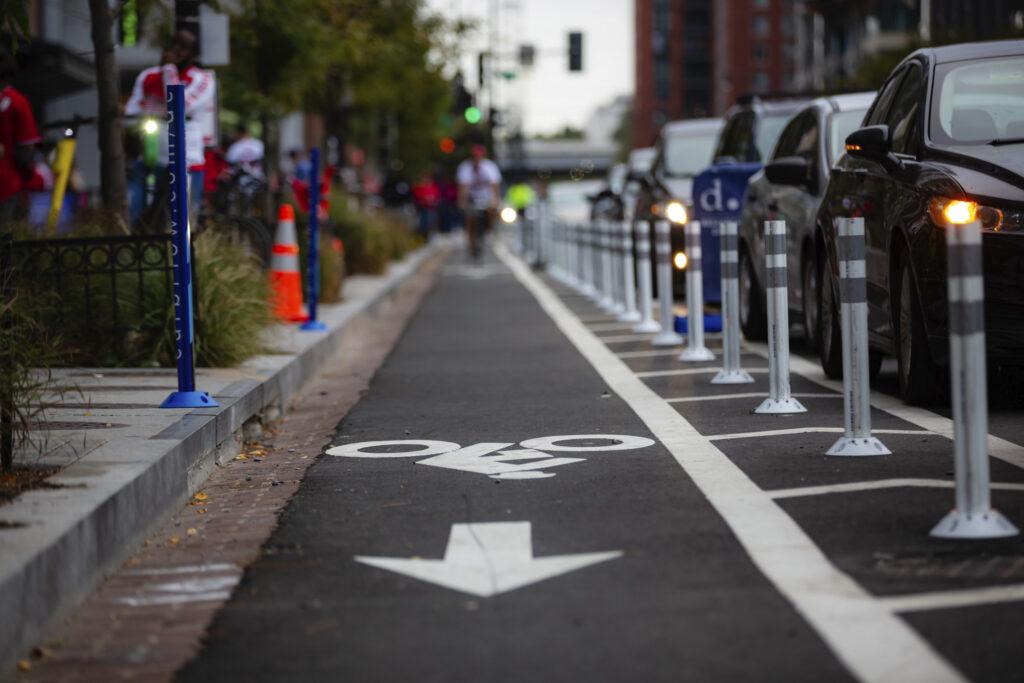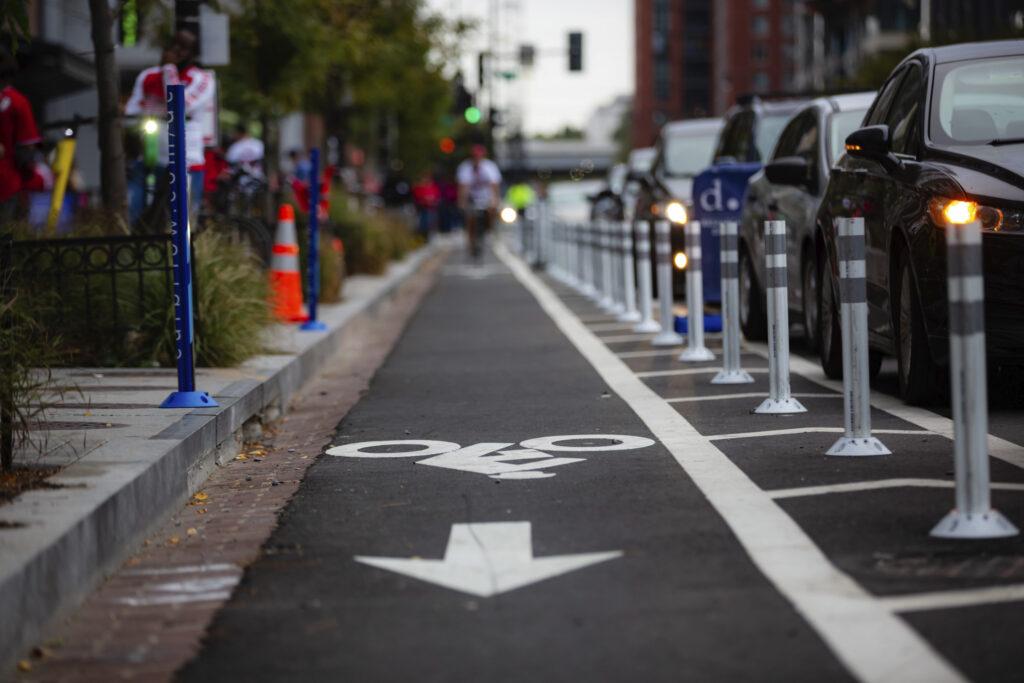Disabled individuals sued Washington, D.C., on Nov. 21 for allegedly violating the Americans with Disabilities Act (ADA) with the construction of new protected bike lanes.
The Nov. 21 lawsuit filed in federal court alleges that D.C.’s redesigned bike lanes, which lie between sidewalks and parking spots throughout the District, prevent wheelchair users from safely accessing curbside parking, using sidewalk ramps and crossing streets. The D.C. Center for Independent Living (DCCIL), a nonprofit organization that assists disabled D.C. residents, is one of the plaintiffs in the lawsuit.
According to the lawsuit, new bike lanes on 17th Street NW block disabled residents from entering or exiting parked vehicles. Richard Simms, the executive director of DCCIL, said 14th Street, U Street and P Street are other locations with problematic lanes.
Simms said the design of the new protected bike lanes will cause safety issues with visually impairments individuals from safely reaching bus stops.
“What you have to do is you would have to come off the sidewalk, cross a bike lane and go to the bus stop,” Simms told The Hoya. “It is just a tremendous disadvantage to blind people.”
Simms said the DCCIL received several phone calls from disabled District residents complaining about these protected lanes. One phone call detailed a blind woman hit by a bicycle while crossing a protected lane.

D.C. pledged early this year to build ten miles of new protected bike lanes in the next three years, adding to the District’s existing 24 miles of bike lanes. Simms said it is possible for D.C. to build protected bike lanes without harming disabled residents.
“I do think they can coexist with the disability community, but they cannot exist at the expense of the disability community,” Simms said. “All we want to do is give some careful thought to how you implement this stuff.”
According to the Centers for Disease Control and Prevention, 22% of D.C. adults have a disability. Disabled adults in the District experience significant health disparities and are three times more likely to smoke and have heart disease.
Quill Kukla, a philosophy professor at Georgetown University and the director of the university’s disability studies program, said accessible infrastructure is a basic human right.
“Mobility rights include the right to move through public space, and these are core components of autonomy,” Kukla wrote in an email to The Hoya. “Public life for everyone is enriched when everyone is able to participate in it. An inaccessible space isn’t actually a public space at all, in the morally important sense.”
Amy Kenny, the associate director of Georgetown’s Disability Cultural Initiative, said she wants D.C. officials to give a greater voice to people with disabilities when building new projects.
“22% of adults in D.C. are disabled, and I hope that city officials work with disability advocates to ensure we can live, work and thrive in our city,” Kenny wrote to The Hoya.
Kukla wrote that D.C.’s bike advocacy groups need to be more considerate of the disability community. Kukla wrote that these advocacy groups need to keep in mind that streets are for everyone and should serve a variety of needs.
“I think cyclists and bike advocacy groups are used to fighting the idea that streets are first and foremost for cars, so they feel righteous when they claim street space for themselves, especially since biking is generally healthier and more environmentally friendly than driving,” Kukla wrote.
Simms said the issue of accessibility applies to all District residents — not just disabled residents.
“At any point in your life, something can happen,” Simms said. “Does that mean that we can’t have concern for those who are currently disabled? Don’t they have a right to freely access this beautiful city like everyone else, without impediments, without obstacles, without making it a chore to come out of your door?”






















